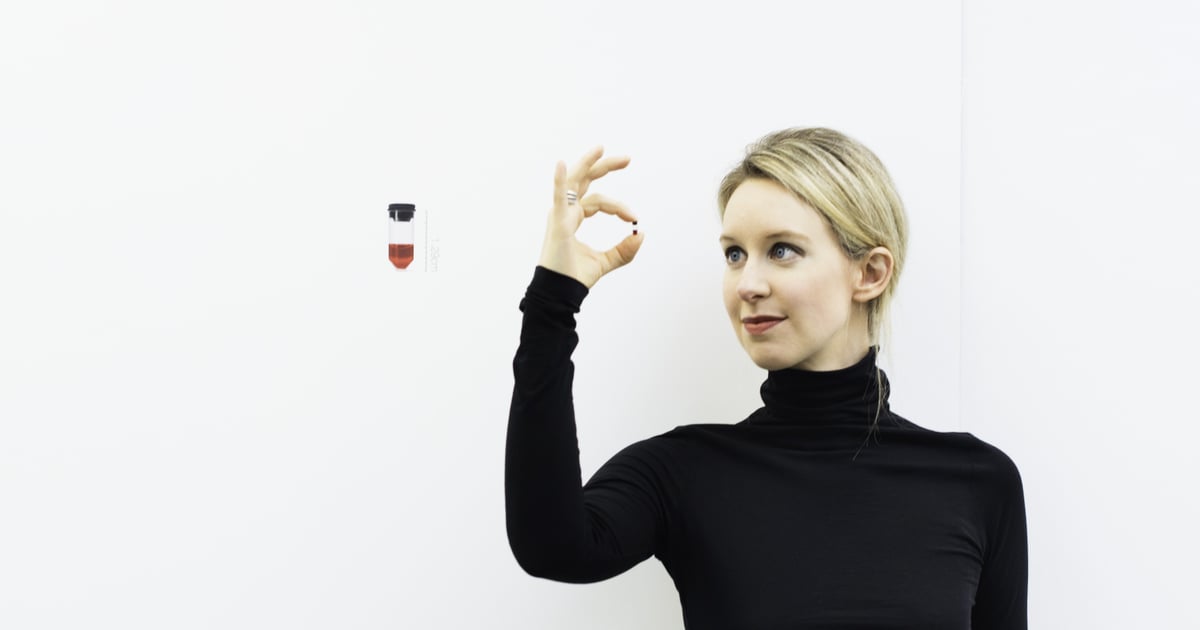
There’s a lot to unpack in The Inventor, the HBO documentary that chronicles the rise and fall of Elizabeth Holmes‘s blood-testing company, Theranos. Once poised to be the “next Steve Jobs” and reformer of healthcare as we know it, Holmes is now awaiting trial for fraud while living in a luxury apartment in San Francisco, and she could face up to 20 years in prison. One of the most intriguing parts of Holmes’s story is that she reportedly changed her voice once she started Theranos at 19 years old after dropping out of Stanford University.
Those who’ve seen the documentary or other recorded interviews know that Holmes has a distinct, deep voice in all of the footage. But people who knew her before she was in the spotlight say that wasn’t always the case. The Inventor doesn’t touch on Holmes’s voice, but The Dropout, ABC News’ podcast about Theranos, does. In episode two, “Myth-Making,” ABC’s Rebecca Jarvis talked to former colleagues and professors who describe not only Holmes’s change in aesthetic as she rose to prominence (wearing black turtlenecks every day), but also her change of voice.
“Some, like Phyllis Gardner, say even her voice also changed dramatically into a low, serious baritone,” Jarvis explained as she talked to Gardner, the Stanford Medical School professor who told Holmes her idea was physically impossible. “When she came to me she didn’t have a low voice,” Gardner said. “It was just like a typical undergrad student. When I next saw her again, she’s in this low voice, and I’m like, ‘Oh my god.’ It was quite awkward.”
Ana Arriola, a former product designer at Apple and one of Holmes’s first recruits for Theranos, echoed that thought. “We didn’t know that it wasn’t her voice until much later,” she said in the same podcast episode. “In all my interactions with her, she never fell out of character. That was her voice. But other people that I worked with actually had caught her fall out of voice.” Arriola said that others heard Holmes accidentally slip up. She shared, “I think it was at one of the company parties. Maybe she had a little bit too much to drink or whatnot, but she fell out of character and exposed that that wasn’t necessarily her true voice.”
Holmes hasn’t directly addressed anything about her voice and hasn’t revealed personal reasons she might have changed it. It’s natural to assume that maybe Holmes thought a deep voice made her sound more authoritative and powerful. “Maybe she needed it to be more convincing to project a persona within a room amongst male VCs. I’m not really quite sure,” Arriola said. “This whole [Holmes] situation, the image manipulation, dressing like Steve Jobs, trying to sound a particular way — it sounds like an awful lot went into facade,” Jillian O’Connor, an assistant professor of psychology at Concordia University who studies the role of voice in social behavior, told The Cut. No matter how you slice it, this is just another intriguing part of the whole manipulative story.

Be the first to comment